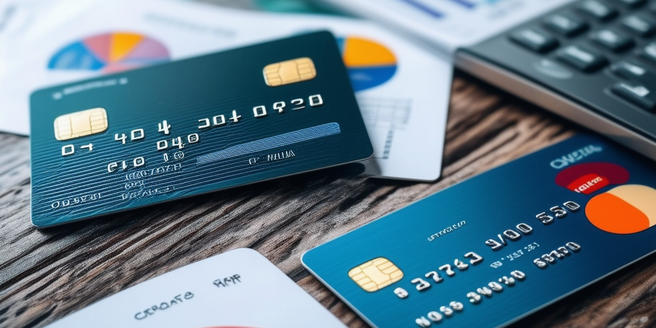Understanding Secured Credit Cards
Secured credit cards are designed to help individuals build or rebuild their credit. They require a cash deposit as collateral, which typically becomes the card’s credit limit. This deposit greatly reduces the risk for the issuer, making it easier for individuals with limited or poor credit histories to qualify. Secured cards can offer the same perks as unsecured cards, such as rewards programs and low interest rates, although these benefits can be limited. By responsibly managing a secured card, users demonstrate their ability to handle credit, which can lead to credit limit increases or offers for unsecured credit cards. Keeping balances low relative to credit limits and making on-time payments are crucial steps in improving credit scores. Over time, secured credit cards can be a vital tool in establishing a solid credit foundation.
Exploring Unsecured Credit Cards
Unsecured credit cards are the most common type of credit card on the market. Unlike secured cards, they do not require a cash deposit as collateral, making them more accessible to those with established credit. Issuers determine your credit limit based on your credit score, income, and other financial factors. Unsecured credit cards offer various features, such as rewards programs, travel benefits, and balance transfer options. However, approval for these cards can be more difficult for individuals with lower credit scores. Interest rates on unsecured credits can be higher, and penalties for late payments or over-limit spending can impact your credit score. It is essential to read the terms and conditions carefully and understand the fees associated with each card. Properly managing an unsecured credit card is key to maintaining a healthy credit profile.
Key Differences Between Secured and Unsecured Cards
Secured and unsecured credit cards serve different purposes and cater to various financial situations. The primary difference is the requirement of a cash deposit for secured cards, which acts as collateral and determines the credit limit. This makes secured cards more accessible to those with no credit history or lower credit scores. Unsecured cards, however, do not require a deposit, which means they are issued based on creditworthiness. Secured cards generally have higher approval rates but may come with fewer rewards and perks compared to unsecured cards. Conversely, unsecured cards often provide more attractive benefits, including travel insurance, cashback, and lower interest rates for those with good to excellent credit. Deciding which card is best depends on individual financial goals, credit status, and the ability to responsibly manage a credit line.
Pros and Cons of Secured Credit Cards
Secured credit cards offer several advantages, particularly for individuals looking to build or repair their credit. The primary benefit is easier approval due to the required cash deposit, which significantly reduces the lender’s risk. Additionally, secured cards report to major credit bureaus, helping users establish credit history and improve their scores over time. However, these cards also have some drawbacks. The cash deposit ties up funds that could be used elsewhere, and secured cards may come with higher fees and limited rewards compared to unsecured cards. Interest rates can be higher than average, and failing to manage the credit carefully could negatively impact credit scores. Despite these potential drawbacks, responsible use of a secured credit card can pave the way for stronger credit and better financial opportunities in the future.
Pros and Cons of Unsecured Credit Cards
Unsecured credit cards come with distinct advantages, appealing to those with established credit. They do not require a deposit, offering more liquidity for users. Many unsecured cards provide benefits such as rewards programs, cashback, and introductory low-interest rates. These perks can be advantageous for borrowers who pay their balances in full each month. However, there are downsides. Applicants with poor credit histories may face challenges in securing approval, and interest rates and fees can be high for those with less-than-ideal credit. Additionally, misuse, such as late payments and high credit utilization, can lead to financial trouble and adversely affect credit scores. It’s crucial for cardholders to regularly review terms and manage spending responsibly to make the most of an unsecured credit card while safeguarding their financial health.


